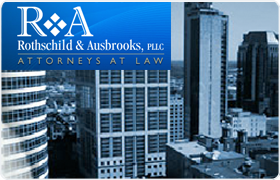Murfreesboro Bankruptcy & Debt Lawyer, Tennessee
Sponsored Law Firm
-
 x
x

Click For More Info:
-
Rothschild & Ausbrooks, PLLC
1222 16th Ave. South, Suite 12 Nashville, TN 37212» view mapBankruptcy Filing, Chapter 7, Chapter 13 You Are Not Alone. We Can Help.
Our law firm encourages communication. We respond to calls and e-mails promptly. This is your case, and you will be involved every step of the way.
800-966-8531
Kevin Szathmary
Wills & Probate, Bankruptcy, Tax, Estate Planning
Status: In Good Standing *Status is reviewed annually. For latest information visit here
FREE CONSULTATION
CONTACTMichelle Day Reynolds
Alimony & Spousal Support, Adoption, Banking & Finance, Bankruptcy
Status: In Good Standing *Status is reviewed annually. For latest information visit here
FREE CONSULTATION
CONTACTBerry A. Foster
Landlord-Tenant, Family Law, Juvenile Law, Collection
Status: In Good Standing *Status is reviewed annually. For latest information visit here
Kris Matthew Oliver
Insurance, Reorganization, Estate Planning, Litigation
Status: In Good Standing *Status is reviewed annually. For latest information visit here Licensed: 14 Years
Jeffrey L. Reed
Litigation, Banking & Finance, Business, Bankruptcy, Criminal
Status: In Good Standing *Status is reviewed annually. For latest information visit here
Christy Hammond
Criminal, Administrative Law, Bankruptcy, Banking & Finance
Status: In Good Standing *Status is reviewed annually. For latest information visit here Licensed: 14 Years
Pat Blankenship
Business & Trade, Commercial Bankruptcy, Corporate
Status: In Good Standing *Status is reviewed annually. For latest information visit here Licensed: 49 Years
Ralph Edward Krisher
Labor Law, Elder Law, Insurance, Bankruptcy
Status: In Good Standing *Status is reviewed annually. For latest information visit here Licensed: 27 Years
Cory Robert Owens
Credit & Debt, Criminal
Status: In Good Standing *Status is reviewed annually. For latest information visit here Licensed: 11 Years
Michelle Reynolds Waln
Credit & Debt
Status: In Good Standing *Status is reviewed annually. For latest information visit here Licensed: 20 Years

 Mary Ausbrooks Nashville, TN
Mary Ausbrooks Nashville, TN Contact UsCall or Email
Contact UsCall or Email LinkedIn
LinkedIn